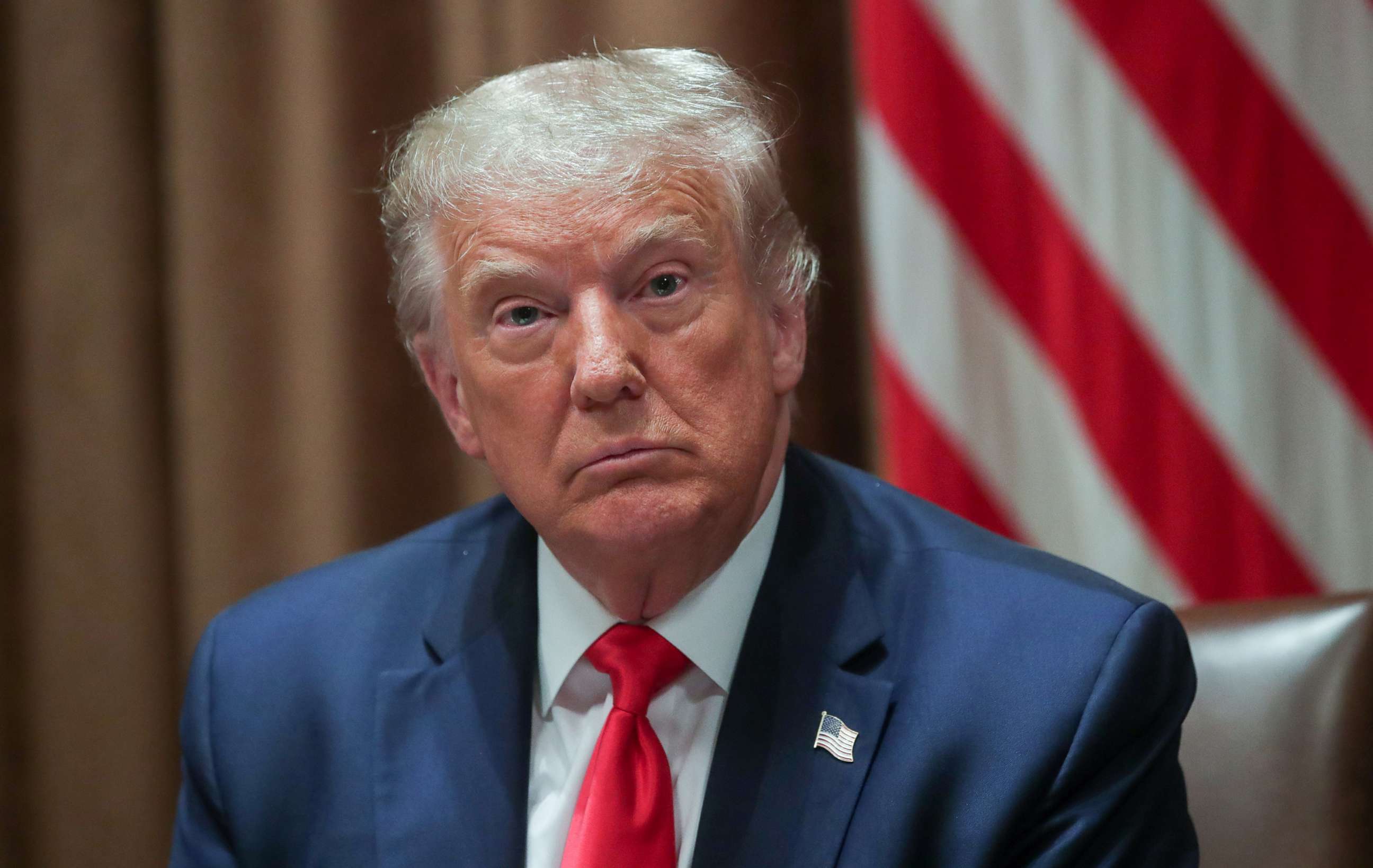China's ambassador to US slams Trump for COVID-19 blame
"As soon as we discovered something, we shared it ... " the ambassador said.
Warning that tensions with China have reached "unprecedented" levels, China’s ambassador to the United States on Tuesday chastised President Donald Trump’s use of the phrase "China virus" and fiercely disputed accusations that the Chinese government withheld potentially life-saving information about COVID-19 in the earliest days of the pandemic.
"We have to base ourselves on real facts, and … the timeline is very clear," Ambassador Cui Tiankai said. "Everybody knew [early on] this is very dangerous."
In late December 2019, Chinese authorities identified "a few cases" of "pneumonia of unknown cause" in the Wuhan province, and within days -- on Jan. 3 -- the World Health Organization was notified, according to Tiankai. The next day, Chinese authorities "had their first communication" with the U.S. Centers for Disease Control and Prevention about the new virus, but at that time "nobody in the world knew anything about" it, he said.
A week later, when there were still only "single-digit number of cases here in the United States," the Chinese government publicly released the genetic makeup of the virus, according to Tiankai, speaking during an online session of the annual Aspen Security Forum.
"As soon as we discovered something, we shared it with the international community. This is a fact," he insisted. "Everything was done very quickly."
But Trump and some of the nation’s top disease experts have blamed the Chinese government for initially hiding the most significant component of COVID-19: that it’s easily spread among humans.
Tune into ABC at 1 p.m. ET and ABC News Live at 4 p.m. ET every weekday for special coverage of the novel coronavirus with the full ABC News team, including the latest news, context and analysis.
Even as late as mid-January, "We were still hearing from the Chinese that it wasn't efficiently spread from human to human," Dr. Anthony Fauci, the head of the National Institute of Allergy and Infection Disease, recently told ABC News. "[But] then as the weeks went by, it became very clear … that there really would be trouble."

Trump has repeatedly called COVID-19 the "China virus" or "Chinese flu," insisting the Chinese government is "fully responsible for concealing the virus and unleashing it upon the world," as he put it last month.
During Tuesday’s online forum, however, Tiankai denounced such rhetoric.
"It's certainly wrong to have such stigma," he said. "The virus, as defined by the World Health Organization, is COVID-19. And the WHO has ruled that the name of any such virus should not be linked with any particular place, people, or ethnic group. … This is an international rule I think all of us should follow."
Tiankai also disputed that Chinese authorities failed to acknowledge the human-to-human transmission quickly enough.
Understanding the mode of transmission was "extremely important for our response to the virus, so that’s why we sent our national experts to Wuhan to determine whether this is transmitted among human beings," he said. "And once they determined that this is transmitted among human beings, we had the Wuhan lockdown," sealing off about 12 million people from the rest of China and the world.
"So everybody knew this is very dangerous," he insisted.
The Wuhan lockdown was announced on Jan. 23. Since then, nearly 19 million people have been infected around the world and hundreds of thousands have died, including more than 150,000 inside the United States alone.
Speaking more broadly about U.S.-China relations, Tiankai criticized America for what he called its "obsession with global dominance," warning that current tensions are "unprecedented," at least since diplomatic relations between the two countries were restored in the early 1970s.
"China certainly has no intention to seek global dominance," he claimed. "But people here in this country talk about this so often, it seems to be there is such an obsession with it."
Tiankai offered this warning: "We are at a very critical moment for our relations. … So the choices we are making today will really shape not only relations between our two great countries but also the future of the world."
What to know about coronavirus:
- How it started and how to protect yourself: coronavirus explained
- What to do if you have symptoms: coronavirus symptoms
- Tracking the spread in the US and Worldwide: coronavirus map



